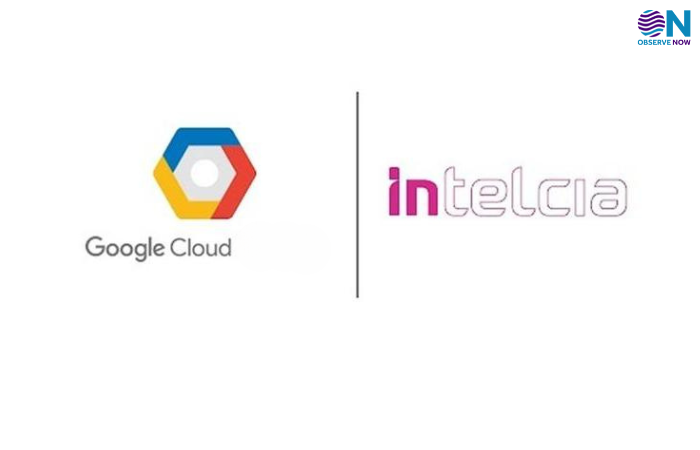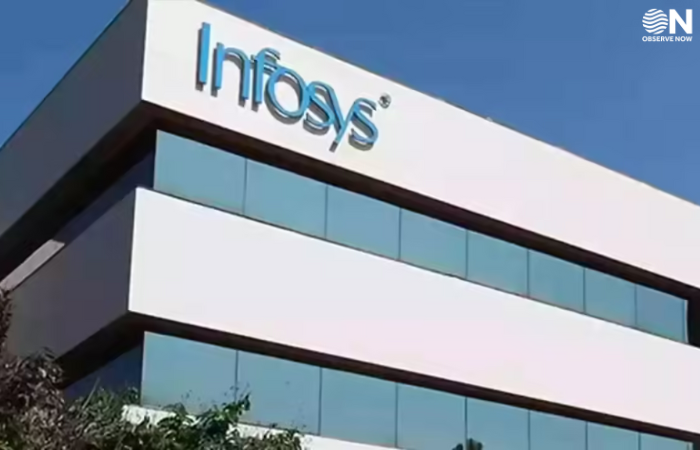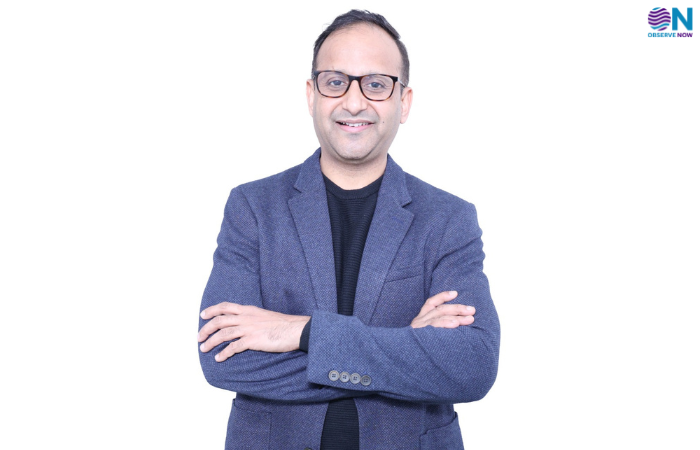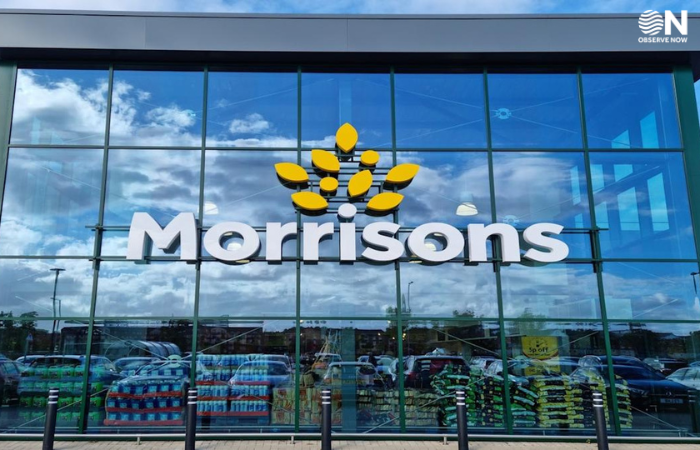As India’s digital economy matures, B2B platforms are no longer just directories—they’re becoming intelligent ecosystems for trade enablement, discovery, and trust. At the helm of this evolution is Sandip Chhetri, CEO of TradeIndia.com, a pioneer in digital commerce that has served Indian SMEs for over two decades.
In an exclusive interaction with ObserveNow, Chhetri sheds light on how TradeIndia is embedding AI to empower small businesses, streamline matchmaking, and deliver actionable insights at scale. From the intricacies of data sovereignty and multilingual engagement to building explainable AI within a regulatory framework, he offers a sharp view of the challenges—and immense possibilities—that lie ahead for Indian B2B marketplaces.
Here is the conversation:
- As a B2B marketplace, how do you continuously redefine customer experience to anticipate evolving user expectations and maintain a leading position in a rapidly changing digital landscape?
Business landscapes are ever-evolving. At TradeIndia, reshaping the customer experience is something we do every single day on the go. Listening to our buyers and sellers to understand their needs and deliver value is a core principle of our organization. It further helps us to improve products, services, and the overall customer experience, ultimately driving satisfaction. That is why we don’t limit ourselves to just being a place to complete transactions. We strive to create a complete B2B ecosystem that guides a business from first inquiry to final delivery.
We integrate AI/ML into our recommendation engines, chat assistants, and lead-matching tools for enhanced user clarity. Continuous feedback, usability tests, and competitive analysis ensure we exceed user expectations. Our TradeIndia mobile app further empowers MSMEs with on-the-go lead discovery, inquiry management, and buyer engagement, prioritizing speed, simplicity, and accessibility.
Now talking about innovation, our drive has already brought forward platforms such as TradeUdhaar – a digital fin-tech that hands SMEs easy-to-read financial insight and TradeKhata – to help MSMEs manage personal ledgers on their phones for faster payment collection. For us, customer experience goes far beyond just a polished interface; it is about steady support, trustworthiness, and real growth for every business.
- How are you strategically leveraging data across all touch points to not only personalize user experiences but also to inform product development and market expansion initiatives?
Data lies at the heart of every choice we make. At TradeIndia, we search through and analyse millions of clicks, searches, queries, and transactions every day to create clear, useful signals. These signals help us cohort our audience, polish product pages, tune seller-buyer matchmaking, and build laser-focused campaigns that lift conversions.
As I always say, data is everything. By analysing external data, we identify rapidly expanding sectors and areas that are currently neglected. This information helps us allocate and fully optimise our resources, attention and budget – to where they will have the most significant impact. By following the numbers, our expansion stays steady and lines up with the actual demand users create every day.
Analyzing user behavior across all touchpoints, we observed a strong signal in regional language preferences, particularly for vernacular content, alongside voice and video. Translating high-traffic pages into Hindi resulted in over 300,000 additional monthly visitors, validating our approach. We then leveraged AI to launch micro-websites in regional languages, boosting accessibility and connecting with new user segments.
- As your user base scales nationally, what unique challenges have you encountered in ensuring equitable access and performance across diverse geographical regions and internet infrastructures?
I believe it is worth stating that scaling nationally in a country as diverse as India presents unique infrastructural and behavioural challenges. One of the foremost is ensuring platform accessibility and responsiveness in areas with limited bandwidth or inconsistent internet connectivity. To address this, we’ve optimized our web and app platforms to function seamlessly on low-speed networks and older devices.
Another challenge is regional language barriers and digital literacy. Our sellers and buyers come from all walks of life. While English may dominate urban centres, a vast segment of our user base prefers to transact in regional languages. We are investing in multilingual support, technology, voice search, and vernacular content to break these barriers and make our platform inclusive and accessible to all.
Lastly, support and onboarding in Tier 2 and Tier 3 cities require a more high-touch, localized approach. We have expanded our on-ground teams and regional partner networks to ensure every user, regardless of location, gets the same level of service and opportunity. Multilingual capabilities allow us to effectively engage buyers in Tier 2 and Tier 3 cities who prefer regional languages, significantly expanding our addressable market.
- Are you currently running GenAI or LLM workloads internally? If yes, through what platforms?
Our mission is to make trade easier, faster, and more accessible for everyone. To achieve this, we’ve embraced cutting-edge technologies like GenAI, LLMs, and Voice-to-Text solutions to enhance lead quality and enable hyperlocal matchmaking.
GenAI now sits at the core of our operations. We’re not only training call bots using these models but also converting voice inputs into structured, actionable text. This allows us to make tens of thousands of automated, intelligent calls daily, proactively engaging with buyers to better understand their needs and preferences.
We’ve leveraged Gen AI automation extensively to streamline content creation at scale. One of our major achievements has been the translation of over 30 lakh pages into Hindi, significantly enhancing accessibility for our regional audience.
To further optimize operations, we’ve deployed AI-powered call bots to handle incoming calls efficiently — including CRM-driven follow-ups in real-time, ensuring accuracy and quality in buyer-seller matchmaking.
- What role does data privacy play in TradeIndia.com product development cycle?
Data privacy is not just a compliance box for us — it is foundational to our platform and organisation. With increasing digitization, especially in B2B commerce, trust becomes a key differentiator. At TradeIndia, we ensure that all user data is handled with the highest standards of security, confidentiality, and transparency.
At TradeIndia, we take data privacy and security with the utmost seriousness. We are fully compliant with the Personal Data Protection Act and the Digital Personal Data Protection Act, 2023, ensuring that user data is handled transparently and responsibly. In alignment with the RBI’s Digital Lending Guidelines (DLG), we adhere to all regulatory standards governing digital lending practices.
To safeguard user data, we’ve implemented anti-data theft malware and strict access controls, backing up all customer information regularly. During product development, new features undergo a rigorous data privacy audit following a ‘privacy by design’ approach, and our teams receive regular training on data governance.
For Sandip Chhetri, the future of B2B commerce lies not just in scale, but in smart scale—where platforms don’t just connect buyers and sellers, but understand, guide, and grow them. His vision for TradeIndia is one where AI becomes a silent partner to Indian SMEs, amplifying their strengths without adding complexity.
As platforms like TradeIndia double down on personalization, compliance, and contextual intelligence, they’re setting the tone for how India’s next billion B2B transactions will be built—not on chance, but on intelligent, inclusive systems designed for real business outcomes.























